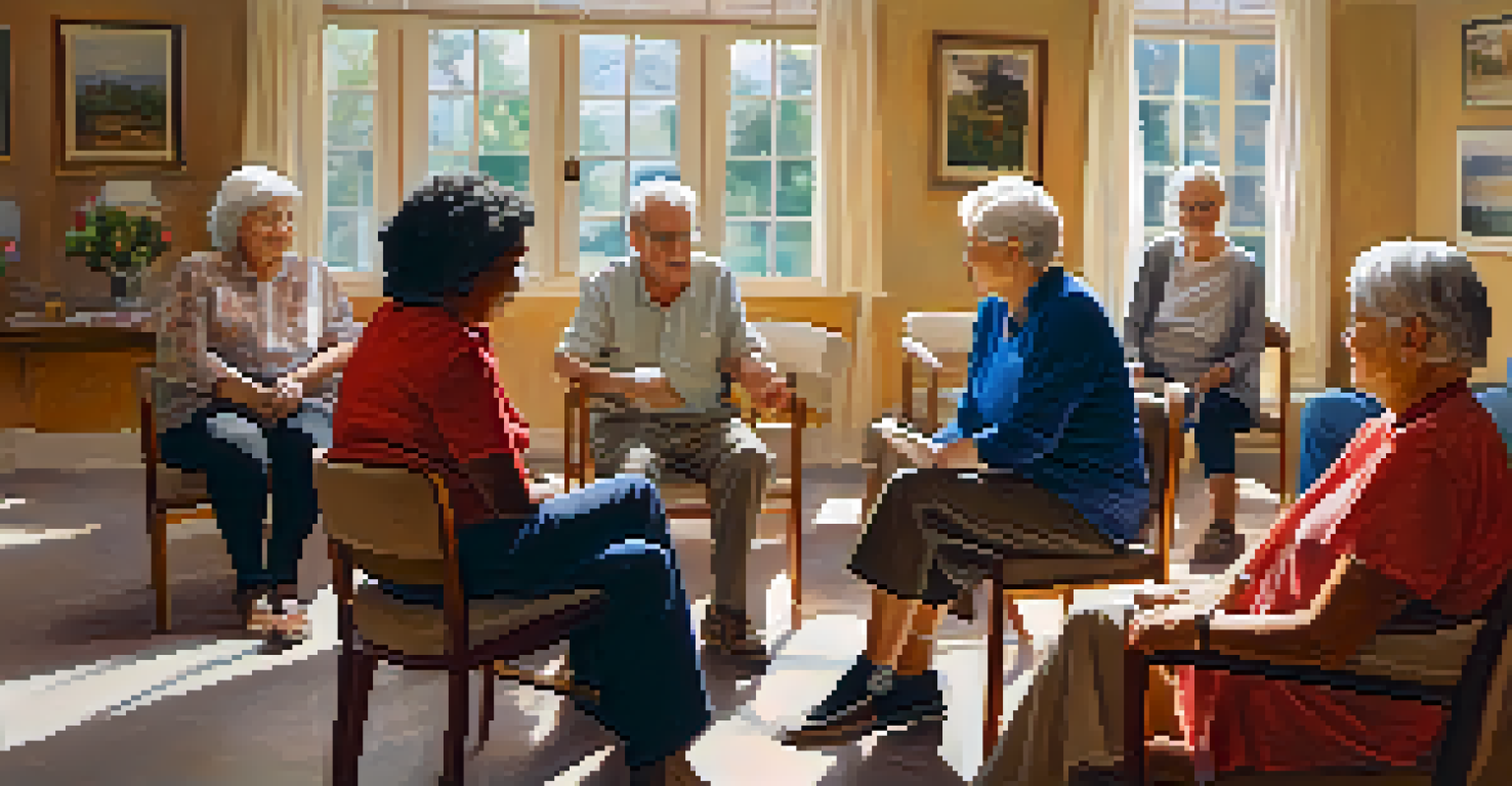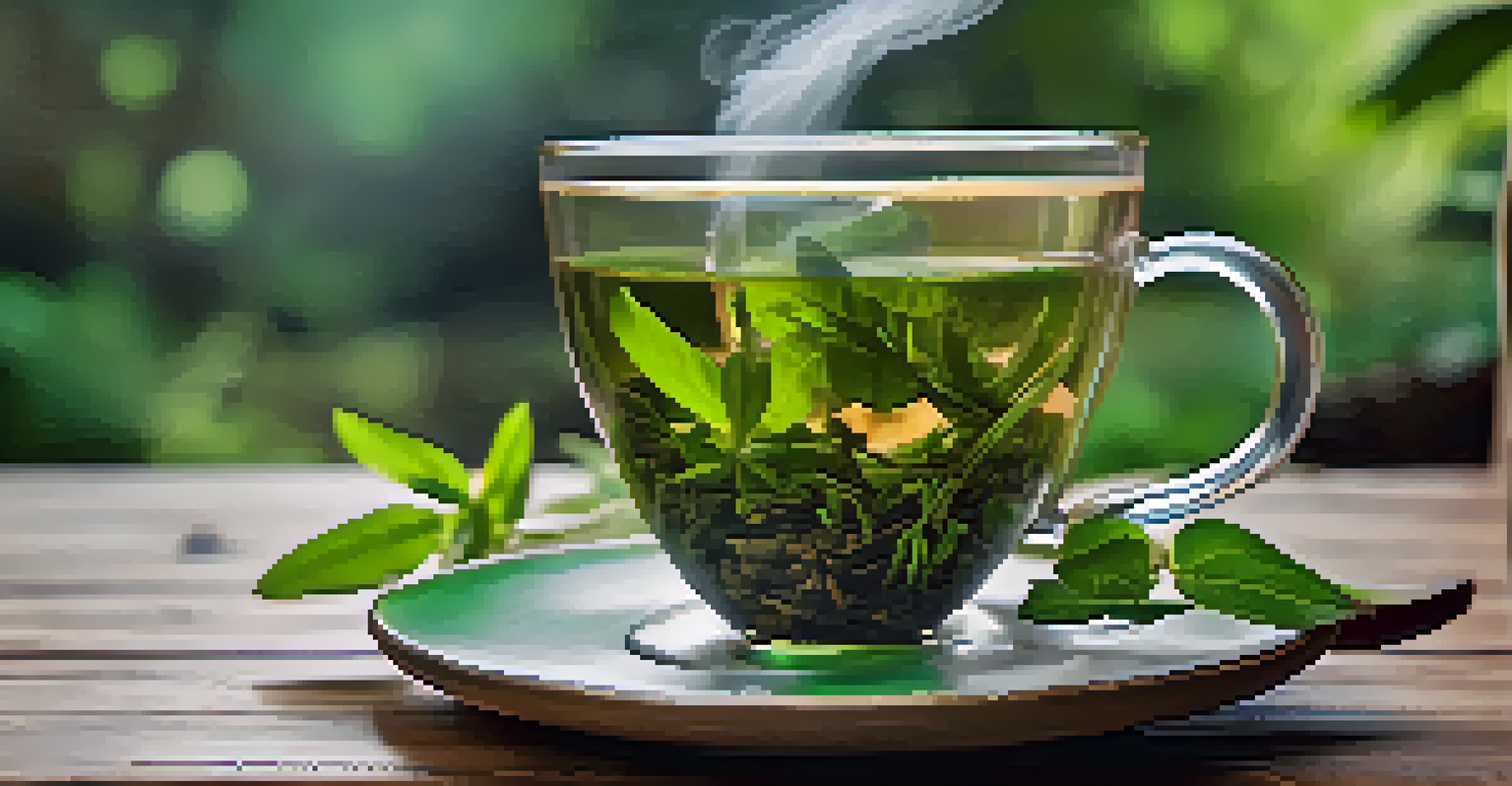Entheogens: A New Approach to Elderly Mental Health

Understanding Entheogens and Their Historical Context
Entheogens are substances that are often used in spiritual or religious contexts to induce altered states of consciousness. Historically, these natural compounds have been utilized by various cultures for centuries, serving as tools for healing and personal growth. From indigenous tribes in the Amazon using ayahuasca to ancient Greeks consuming psychedelics in their rituals, the use of these substances has deep roots in human history.
The mind is everything. What you think you become.
In recent years, the scientific community has begun to revisit these age-old practices, particularly in the realm of mental health. Researchers are exploring how entheogens might offer new avenues for treating conditions like depression, anxiety, and PTSD, especially among the elderly. This resurgence of interest is fueled by emerging studies that suggest a potential for profound therapeutic benefits.
Understanding the context and cultural significance of entheogens can help us appreciate their potential to impact mental health positively. As society becomes more open to alternative therapies, entheogens may play a critical role in transforming the way we approach elderly care and well-being.
The Science Behind Entheogens and Mental Health
Recent studies have highlighted the neurochemical effects of entheogens, particularly their ability to promote neuroplasticity—essentially the brain's capacity to adapt and reorganize itself. This is particularly important for seniors, as neuroplasticity can help combat cognitive decline and improve mental resilience. Substances like psilocybin and LSD have shown promise in clinical trials, demonstrating significant improvements in mood and mental clarity.

Moreover, entheogens can stimulate brain regions associated with emotional regulation, fostering a sense of connection and empathy. This is crucial for elderly individuals who may feel isolated or disconnected from their communities. By enhancing emotional well-being, these substances can help improve overall life satisfaction and quality of life.
Entheogens Aid Elderly Mental Health
Entheogens have shown promise in treating depression and anxiety in seniors, offering new therapeutic avenues that traditional medications may not provide.
While the research is still evolving, the potential for entheogens to serve as adjuncts to traditional therapies presents a compelling case. As we continue to unravel the complexities of the human brain, these ancient tools may provide innovative solutions for modern mental health challenges.
Potential Benefits of Entheogen Use in Seniors
The potential benefits of entheogen use among the elderly are numerous and profound. For many seniors, conditions such as depression and anxiety can be debilitating, often leading to a diminished quality of life. Entheogens may offer a new approach by providing relief from these symptoms in a way that traditional medications sometimes cannot.
The greatest discovery of my generation is that a human being can alter his life by altering his attitudes.
In addition to treating mental health conditions, entheogens may also help seniors connect with their spirituality and sense of purpose. This can lead to improved overall well-being, fostering a sense of community and belonging, which is often vital for mental health. The communal experience of guided sessions can break down barriers of isolation, allowing seniors to share their journeys and insights.
Furthermore, the therapeutic effects of entheogens often extend beyond the immediate experience, leading to lasting changes in perspective and emotional processing. As these substances continue to gain legitimacy in therapeutic settings, they could become a vital resource for enhancing the mental health of elderly individuals.
Challenges and Considerations in Entheogen Research
While the potential benefits of entheogens are exciting, there are also challenges and considerations that must be addressed. One significant hurdle is the legal status of these substances, which varies across regions and can hinder research and accessibility. Navigating these regulations is crucial to ensure that seniors can safely benefit from entheogen-assisted therapies.
Another consideration is the importance of dosage and supervision. Older adults often have different physiological responses to substances compared to younger populations, making careful monitoring essential. This highlights the need for well-structured clinical trials that specifically focus on the elderly to ensure safety and efficacy.
Cultural Shifts Support Entheogen Use
As society becomes more open to alternative therapies, entheogens may play a critical role in transforming elderly care and well-being.
Lastly, cultural stigma surrounding entheogens can pose a barrier to acceptance. Educating both healthcare providers and the general public about the positive potentials of these substances is necessary to foster a more open dialogue regarding their use in mental health care for seniors.
Real-Life Applications: Case Studies and Research
Several case studies and clinical trials have emerged, showcasing the positive impact of entheogens on elderly mental health. For example, a recent study involving psilocybin therapy for older adults with treatment-resistant depression demonstrated remarkable improvements in mood and emotional well-being. Participants reported lasting benefits even months after the sessions, highlighting the potential for these substances to create transformative experiences.
Furthermore, anecdotal evidence from users has illustrated the profound shifts in perspective and emotional healing that can occur through entheogen use. Seniors have shared stories of reconnecting with lost loved ones, finding peace with their life choices, and rediscovering joy in everyday activities. These personal narratives add depth to the scientific findings, emphasizing the emotional and psychological benefits.
As more research unfolds, these real-life applications provide a glimpse into the future of mental health care for seniors. They underline the importance of integrating innovative approaches into traditional therapeutic frameworks, ultimately enhancing the quality of life for elderly individuals.
Integrating Entheogen Therapies into Elderly Care
As the field of mental health continues to evolve, integrating entheogen therapies into elderly care may become a pivotal strategy for wellness. This integration could involve training healthcare professionals to facilitate safe and supportive environments for entheogen use. By creating structured programs, we can ensure that seniors receive the benefits of these substances while minimizing risks.
Additionally, collaboration between researchers, mental health professionals, and policymakers will be essential to pave the way for effective implementation. By establishing guidelines and best practices, we can create a framework that promotes responsible use and maximizes therapeutic outcomes. This collective effort will help demystify entheogen use and encourage acceptance within healthcare settings.
Research Validates Therapeutic Benefits
Ongoing studies highlight the neurochemical effects of entheogens, suggesting they can enhance emotional well-being and foster connections among older adults.
Ultimately, integrating entheogen therapies into elderly care holds the promise of enhancing mental health treatment options for seniors. As we embrace these innovative approaches, we must also prioritize education and awareness to ensure that the benefits are accessible to those who need them most.
The Future of Entheogens in Elderly Mental Health Care
Looking ahead, the future of entheogens in elderly mental health care appears promising. With ongoing research and increasing acceptance, these substances could become a mainstream option for therapeutic intervention. As we continue to gather data and insights, the potential for entheogens to provide relief and healing for seniors is becoming more apparent.
Moreover, as society shifts its perspective on mental health and alternative therapies, we may witness a greater demand for holistic approaches. This could lead to the establishment of specialized clinics and programs dedicated to entheogen-assisted therapies for the elderly, creating safe spaces for exploration and healing.

In conclusion, the integration of entheogens into elderly mental health care is not just a trend; it represents a transformative shift in how we approach mental wellness. By embracing these ancient practices backed by modern science, we have the opportunity to foster healing and connection for one of the most vulnerable populations in our society.